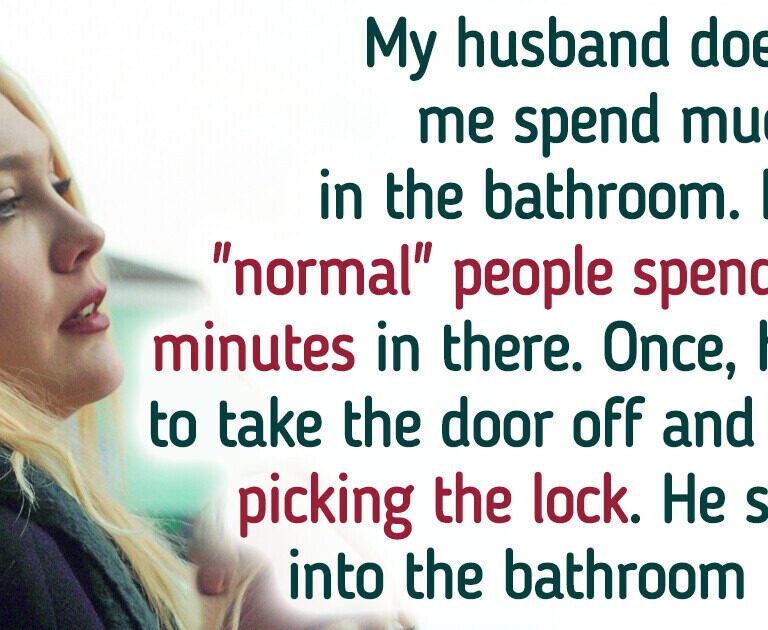Thank you for sharing such a deeply personal and painful experience. We’re truly sorry you’re going through this, and we’d like to offer some advice to help you navigate this challenging situation:
- Set Clear Boundaries
His behavior is not only inappropriate but deeply invasive. You need to assert that this level of control and violation of your privacy is unacceptable. Everyone deserves personal space and autonomy. If he continues to ignore your boundaries, you may need to seriously reconsider whether this relationship is still healthy for you. - Address the Root of His Distrust
Your husband’s actions point to serious trust issues that need to be confronted. Have a conversation about why he feels the need to monitor your every move and make baseless accusations. While reassurance might help in the short term, it’s essential to highlight how damaging this is to your relationship. Couples therapy could be a valuable way to explore these issues with a professional. - Recognize the Red Flags
This goes beyond insecurity—his behavior is controlling and toxic. Constant accusations, invasions of privacy, and restrictions on your time are warning signs of an unhealthy relationship. You deserve to feel respected and safe in your own home. Take time to reflect on whether this relationship is bringing you happiness or causing more emotional harm. - Document His Behavior
If his actions escalate, it’s important to document these incidents. Keep a detailed record of his controlling behavior, noting dates and specific actions. If the situation becomes more aggressive or threatening, reach out for help. Your safety is a top priority, and contacting authorities may be necessary to protect yourself.
We understand how difficult and overwhelming this situation is, and we hope these steps help you move toward peace, safety, and self-empowerment.

